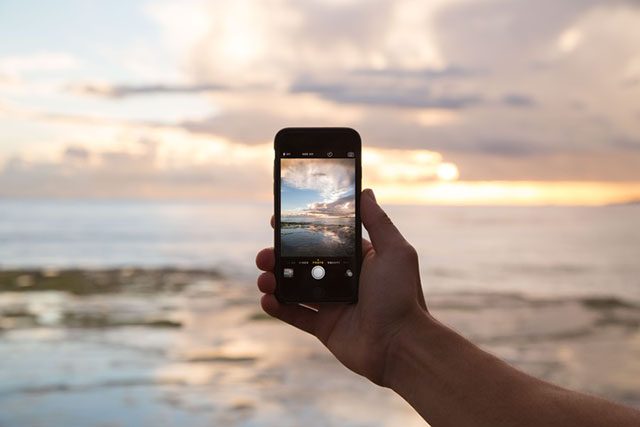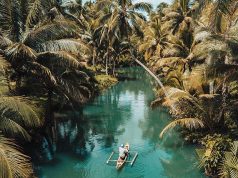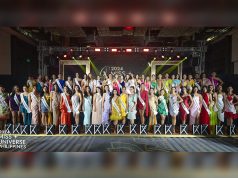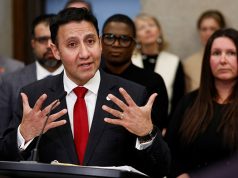A beach resort in Siargao, a top tourist destination in the country, called out supposed “influencers” for constantly asking for a collaboration in exchange for free accommodation and services.
White Banana Beach Club shared that it has been getting messages from supposed social media personalities who wanted to feature the resort on their online platforms for free food and drinks, among others.
It later on clarified that it is not against influencers but “freeloaders” or those who claim that they wanted to advertise the resort under the condition that they do not have to pay.
“A REAL influencer is called as such by the rest, he does not address him/herself as an influencer,” the beach resort said in the post.
“We have actually collaborated with a few of them, in different terms and conditions, and we support them,” it continued.
The beach resort said that “real influencers” have never attempted to contact them in the first place. Instead, it is the other way around where it pays the influencers to feature them on their platforms.
Social media users generally agreed with the beach resort’s posts but there were content creators and bloggers who aired their side as well. It is not determined, however, whether they actually approached the beach resort or not.
“If these people formally sent you a message, I think they deserve a formal rejection as well. Not like this. I do blog (though). I have a full-time job, and I work hard to be able to travel so (that) I can have a content,” blogger Jovelyn Mateo wrote.
“I recently tried pitching to resorts and hotels, because why not right? There’s no harm in trying naman, and if you know that you have something to offer on the table, it’s never a bad thing to try,” she continued.
A travel vlogger said that he works hard to brainstorm ideas and create and edit content. He added it is a challenge for those who are starting out or trying to build their portfolio to get a client.
“As (a) vlogger, we create content. Nag-e-effort kami na mag-isip ng idea, nag-effort mag-video, nagpapakapuyat mag-edit. We invest sa gadget. We invest our time. Pagod at puyat at kahihiyan bago makakuha ng followers/subscriber,” Daryl Dazo Orillo wrote.
“I email sometimes sa hotel/resort to collaborate in exchange of video promotion. They accept it. They ignore it. Whatever the outcome, it’s ok. It’s hard to get (a) client lalo na kung wala ka pang magandang portfolio,” he added.

Orillo noted that their work continues even after their stay at the resort or similar accomodations since they have to edit their content to make it appealing to the audience.
“Hindi lang bakasyon ang iniisip mo — trabaho (kung paano mo sila ma-promote), ‘yung uuwi ka na trabaho pa rin kc (kasi) kailangan mo mag-edit and mag-post. My point is — we email (the) resort/hotel because we know what we can offer. If you think hindi worth it ‘yung proposal, just ignore it or reject it,” he continued.
While notable for calling out “freeloaders,” the beach resort is not the first to express its disappointment over influencers’ requests.
A hotel in Ireland banned YouTube and Instagram influencers in June 2018 after receiving a request from a UK-based influencer to collaborate for a project in exchange for “free accommodation.”
The owner said that the encounter made him question the “authenticity of influencer marketing” since the influencer might have “spoken nicely about the hotel only because she was getting it for free.”
What is an ‘influencer’?
An influencer is someone who has “the power to affect purchase decisions of others because of his/her authority, knowledge, position or relationship with his/her audience,” according to an advertising and marketing company.
It is also defined as someone who has a “following in a particular niche, which they actively engage with.”
Influencers are categorized into four types—celebrities, industry experts, bloggers and content creators and micro influencers.
Industry experts are those that have “qualifications, position or experience about their topic of expertise.” These can be journalists and professional advisors.
Bloggers and content creators, meanwhile, are those that run blogs where a product is promoted. If a video is involved, as well as another platform like YouTube, they are considered as content creators.
Micro influencers are “normal everyday people who have become known for their knowledge about some specialist niche.” They have a social media following who are considered devotees of a particular niche like health, beauty, sports and such.
“It is not just the number of followers that indicates a level of influence, it is the relationship and interaction that a micro influencer has with his followers,” the website noted.










